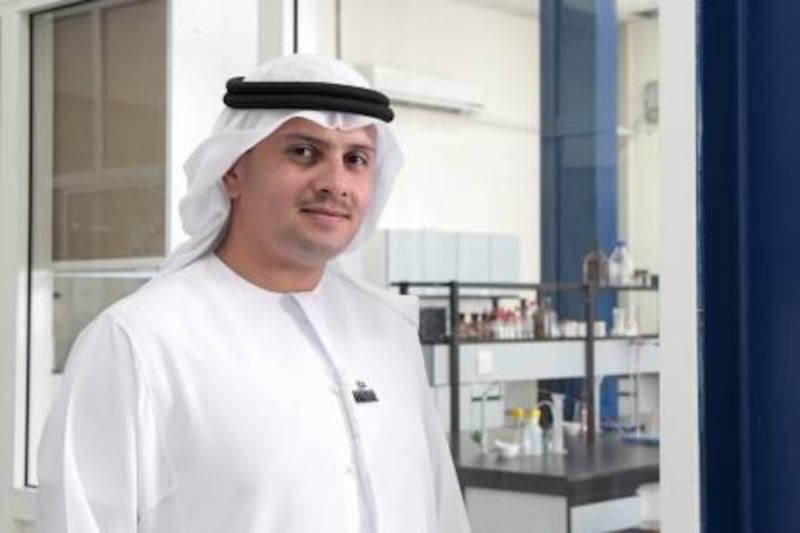AL AIN // Universities are being hampered in their efforts to move into research by a lack of resources and uniform guidelines, academics say.
While the Ministry of Higher Education and Scientific Research which regulates most institutions, stipulates there should be research at every university, funding is limited.
Private universities have to find their own funding, either through their own budgets or by seeking partnerships with industry or other institutions to reduce research costs.
They have to compete for funding with the only research-based federal university, UAE University, from sources such as the National Research Foundation.
Even UAEU is given minimal government funding for research.
Overall, the country spends just 0.1 per cent of its gross domestic product on research, compared with more than 3 per cent in Finland and Japan, and more than 2.5 per cent in Denmark and the US.
"You can't expect a pharmacist to do top-notch research because there aren't the facilities," said Dr Noor Atatreh, chancellor of Al Ain University of Science and Technology.
"To get these facilities is very difficult. As a medical chemist, if I wanted to perform an experiment I need materials and a lot of other things.
"What we do in terms of research we do in collaboration with other institutions. Most of our research is in business, law and education for this reason [they are less resource intensive]."
The university's research output has increased significantly since Dr Atatreh took his post less than two years ago, he said.
It links rises and promotions to output, requiring academics to publish an average of two papers a year.
"We really push academics to do research and that's thanks to the university's policy of only allowing academics to reach a certain level without research output," Dr Atatreh said.
Five per cent of its budget has been allocated for research and staff who go to conferences can claim expenses of up to Dh10,000.
But without more funding the university, like many others, is limited.
"All academic staff know that they need to satisfy the research obligations, but it's not set in any kind of law," Dr Atatreh said.
The situation is similar at Al Ghurair University in Dubai.
"We are a teaching institution but research is part of our mission," said Dr Abdurahim Al Ameen, president of Al Ghurair.
"We must encourage our faculty to do research and in the future we'll be placing more emphasis on this as it's developing."
Staff at Al Ghurair are also appraised based on research output. They are expected - but not contractually obliged - to publish one paper a year.
"At the institutional level, we need to have some minimal standards for evaluation," Dr Al Ameen said. "The faculty member needs to know what's required of them to get a satisfactory evaluation."
But just one paper a year cannot be considered active research, according to Dr Badr Aboul-Ela, head of the Ministry of Higher Education and Scientific Research's commission of academic accreditation.
Dr Abou-Ela wants every university to be active in research, and says institutions must raise their expectations.
"It's important to have a research component in every institution, whether it's a teaching focused or research focused institution," he said. "Teaching staff must also keep up to date with advancements and research in their field.
If it's mainly a teaching institution, faculty have to show some knowledge of the research activity in order to keep current in their field."
Dr Aboul-Ela says funding is a challenge for Al Ghurair, because of the general lack of a research culture in the UAE and of local businesses willing to fund research.
Dr Mohammed Khalifa, vice president for academic affairs at Al Ghurair, said about 15 per cent of the staff in its business school were involved in research - but that amounts to just five individuals.
"That number would at least be a good start but figures show most institutions are below even one per academic," Dr Khalifa added.
Some universities are more forceful when it comes to their research requirements.
All academics at the private, not-for-profit American University of Sharjah have contracts, annual evaluations and a promotions system that clearly describes teaching and research obligations.
Dr Peter Heath, the university's chancellor said its staff fall into two categories.
Some are primarily teachers, teaching four courses a term. They are free to do research but it is not required.
But most - about 90 per cent of the university's 355 full-time academics - teach three courses a term and are expected to publish high-quality research in peer-reviewed international journals or books.
If they do not do this they are not promoted and will have to leave the university.






